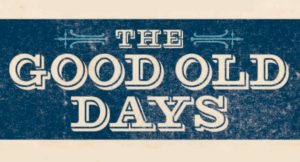DRIPPING SPRINGS, Texas — Looking around this thriving Central Texas community, I am struck by what is occurring back home in North Texas, where I now call home.
Both communities are growing at breakneck paces, although I can argue that Princeton is setting sort of an unofficial land-speed record for residential growth. Princeton is acting on it, believing it is time to put the brakes on residential construction to enable infrastructure development to keep pace with the demand on those services.
Princeton has imposed a four-month ban on residential construction. Four months, at first glance, doesn’t seem as though it provides enough time for the city to provide enough infrastructure to keep pace with growth.
Police Chief Jim Waters said he needs to hire 30 more officers. Thirty more officers? The city needs to erect more water towers to control the flow of water into residents’ homes.
Street repair, construction and maintenance also must be bolstered.
It looks to me that Princeton finally has tapped into its proactive streak in managing its growth. Man … it must act.
The question now becomes: Is four months enough time?
No. It isn’t time to do all the things the city needs to do.
I see a moratorium extension in the city’s immediate future. Other rapidly growing communities, such as Dripping Springs, would do well to follow suit.

